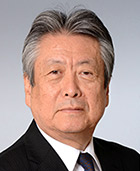
I would like to start the new year with a greeting: Happy new year everyone!
The field of otorhinolaryngology (including head and neck surgery), which deals with the sensory organs and is therefore closely tied to the quality of life, is a diverse one, with many areas of overlap with other fields. In this specialty, we treat patients of all ages: from infants to the elderly. Additionally, we handle the entire spectrum from diagnosis to conservative treatment to surgical treatment. This makes the field of otorhinolaryngology special in that, while it is a surgical field, in many ways, it also resembles the internal medicine field.
Particularly in recent years, there has been an increasing awareness of the importance of the sensory organs and the fact that ailments involving these organs can cause issues that need to be addressed in daily life or work. Because we otorhinolaryngologists treat many of the sensory organs, we would be expected to play a significant role in treating the various problems associated with a super-aging society. Impairments of hearing, balance, taste, smell, or of the ability to speak and swallow can dramatically reduce the quality of life leading to depression and/or reduced cognitive function in elderly patients. In order to ensure children's healthy development and the vitality of elderly patients and their families, active engagement in early treatment and prevention are essential.
While the increase in the medical student quota by 1,600 and the resultant surplus of doctors is a pressing issue, the field of otorhinolaryngology, which covers a wide range of areas, is actually facing a drop in the number of students wishing to enter the field. However, while this led to some concern some time ago that we would soon see a shortage of doctors who would form the backbone of otorhinolaryngology and head and neck surgery, resulting in a reduced capability to provide adequate care to patients in the provinces, we are now expecting an increase in the number of doctors wishing to enter this field in the year 2018. This increased interest is the result of interns and medical students realizing the importance of sensory organ medicine in the super-aging society and of their understanding the quality of the various programs available. If this trend continues, the shortage of doctors would be alleviated, allowing us to fully respond to the needs of our patients and society.
Otorhinolaryngology in Japan is currently tackling policy issues such as the national organization of medical institutions, diversification of planning for academic lectures and specialist courses, consolidation/unification of scientific societies, maintenance of comprehensive training programs, central management of member information, and interdisciplinary cooperation. By addressing these issues, we hope to continue to provide high quality medical care, support local communities, improve otorhinolaryngological science and education and revitalize scientific societies, if only little by little. We are working to coordinate with other departments in order to build a patient-focused, collaborative system of medical care. By working together with other departments, we hope that both we as well our collaborators will be able to increase our value and level of specialization in order to better serve our patients.
Japan was the first country to establish otorhinolaryngology as a specialist field 125 years ago, and it has a long history in this field. While it is in some ways a well established field, with advances in medical research and technology, we are also writing new history.
We hope that this will be a great year for all of you personally as well as for medicine as a whole.
Hiroshi Moriyama, MD, PhD
Chairman, Board of Directors
The Oto-Rhino-Laryngological Society of Japan, Inc.
(January 15th, 2018)

